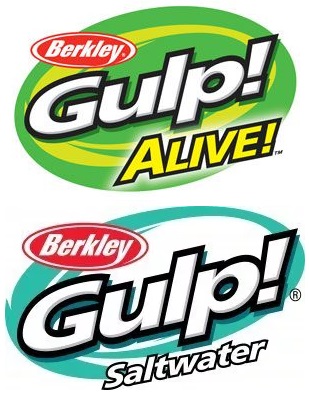 Wherever you fish, the stories are almost the same. Bass fishing is a warm-weather activity. Fall makes its way into winter and the boats get winterized and packed away with the rods and reels until spring. Fish are cold-blooded creatures so there’s no way they have any interest in feeding on anything an angler has to offer while the mercury is dipping.
Wherever you fish, the stories are almost the same. Bass fishing is a warm-weather activity. Fall makes its way into winter and the boats get winterized and packed away with the rods and reels until spring. Fish are cold-blooded creatures so there’s no way they have any interest in feeding on anything an angler has to offer while the mercury is dipping.
While there’s a little bit of truth to this, there are still bass to be caught in the winter. Dr. Keith Jones, one of the innovators of Berkley ® Gulp!, said that in his many years developing baits for Berkley that he has seen cold weather affect bass but not to the extremes that most people assume.
Obviously, the cold weather affects bass dramatically. Fish are cold-blooded and that allows their body temperature to be regulated by the water temperature, Jones said. As the water temperature cools down, they go through quite a bit of bio-chemical changes. Ultimately, their metabolism slows down so much that it begins to offset feeding behavior.
Once the water temperature reaches the upper 40s, things are rapidly slowing down for them.
With this slowing of the metabolism, bass will metabolize food more slowly, lessening their need to feed as much. But that doesn’t mean they will forgo feeding while it is cold. Instead, they will simply feed less. But no matter where the fish are, some of the fish will be engaged in feeding behavior albeit a lower percentage than there would be during warmer times of the year.
You will still be able to find some fish that are behaving as they do in summertime, actively pursuing food, willing to chase fast-moving baits, Jones said. But as a whole, they are not showing that aggressive behavior.
Jones said that during these times of the year, bass seek out the warmer water, though they may not confine all of their activities (such as feeding) to these areas. In rivers, bass will migrate to a sheltered bay to avoid moving water that tends to be colder; in lakes, they will move to deeper portions of the fishery where, at times, large groups of fish will congregate in the same pockets. And just because these bass are congregating in the same area doesn’t mean that they are all either active or inactive. Jones said large groups of fish congregating on the bottom could be made up of both actively feeding and inactive fish. The secret to catching these cold-weather bass is offering them greater enticement, Jones said. He suggests downsizing the bait offerings and slowing the bait’s movement down a perfect assignment for Berkley Gulp!.
A product like Gulp! works well because they get that stronger scent and flavor that tells them it is really food. And the slower you fish it, the more scent fills the area and increases the chances that other fish in the area that might not otherwise be interested in eating will come looking for an easy meal.
